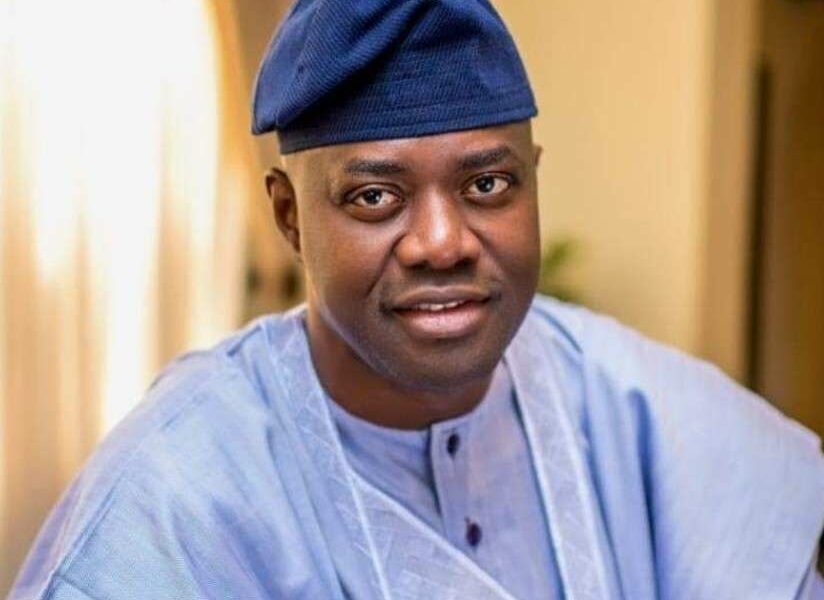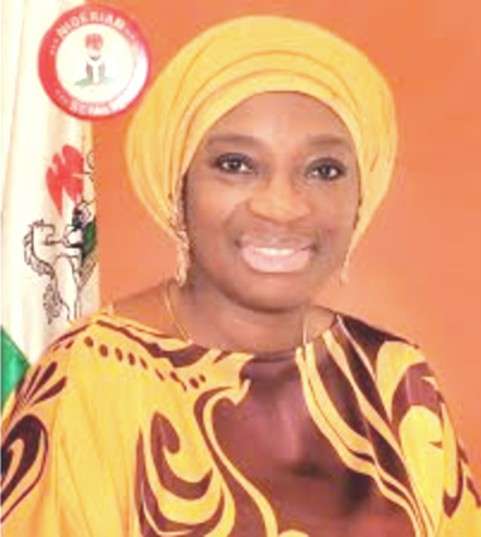By Femi Kehinde
The government effort to arrest Tafa Adeoye, the strongman leader of the Agbekoya, who was reputed to be all charms, was only made possible through a pretty police detective, who was detailed to carry out intelligence surveillance on Tafa Adeoye.
The lady, approached the leader of the Agbekoya group for a relationship. Tafa fell in love with her and “Married” her.
The trap was successful. After a few weeks of the relationship of Tafa and his” wife”, plain clothes policemen, entered his residence and arrested him for the offence of organizing tax agitators against the Government.
The Ibadan business landscape, in the early days was also nurtured by the pioneering efforts of two ijebu brothers, who were business titans, of the same parents- Adeola Odutola (1902-1995) and his brother Jimoh (1905-2010).
Adeola was literate and a Christian, and Jimoh, though not literate was a self-made man, and till his death spoke impeccable English and spoke like a professor. He was a Muslim. Their father was also a Muslim, while their Mother, Sabina was a Christian.
The duo went into a partnership- the Odutola Brothers. Jimoh started the first tyre factory and also the first Foam factory in West Africa, in Ibadan.
Jimoh’s tyre factory in Ibadan was so successful, that he was invited by the Government of Kenya and Ghana to set up similar companies over there.
He lived to a ripe age of 105 years and remained throughout his life an epitome of modesty. Interestingly, Adeola was the father of Professor Mrs. Oyin Olurin, a doyen of Ophthalmology in Nigeria and resident in Ibadan, whilst Jimoh was also the father of Professor Mrs. Ebun Clark, a pioneer of Theater Arts in Nigeria and wife of J.P Clark who wrote the popular poem-“Ibadan”.
It will still not be easy to forget the pioneering efforts of Chief Theophilus Adediran Oni, popularly known as T.A Oni and Sons (adulterated as Oni o Suwon) in the building and construction industry in Nigeria.
He was born in Oke-Mesi, Ekiti State in 1913 and died in February 1975. His company was the first indigenous construction company in Nigeria.
Chief Oni’s most notable act of kindness, was willing his family estate to charity, as a clear demonstration of his high level degree of philanthropy and love for the city of Ibadan.
He willed his residence- Goodwill house, to the Oyo/Western state government, to be used as a Paediatric Hospital, which is now known as T.A Oni Memorial Children Hospital, Ring Road Ibadan.
This sprawling family Estate and residence was cited on a 15acre piece of land, 65 rooms, with modern conveniences, Olympic Swimming Pool, and stable for Horses etc.
Alhaja Humoani Alaga, Alhaja Humoani Alade and Madam Janet Alatede Aboderin (mother of Olu Aboderin and Ajibola Ogunsola), Alhaja Rabiatu Adedigba Akindele (mother of Chief Bode Akindele) and the first Woman to go on Holy Pilgrimage to Mecca, were also Ibadan women of great business acumen in the early days. Mama Chief HID Awolowo, was also prominent in the textile business and her textile store in Gbagi Ibadan, known as Awolowo corner, was very prominent.
As resentment to non-admission of Christian girls to a girls mission school in Ibadan, Alhaja Humoani Alaga, single handedly established Isabatudeen Girls’ Grammar School Ibadan in 1964.
Humoani established her textile trading business in 1928 and in 1933, she had become a successful merchant with properties in Nigeria and in the United Kingdom.
The succeeding generations of the early Ibadan business titans, were the likes of Chief Bode Akindele, who single handedly, established so many factories in Ibadan-Standard Breweries, Standard Packaging, Standard Plastics, Doctor Pepper Soft Drink factory, all in Alomaja Ibadan, and also a Matches Production factory in Eleyele Ibadan.
Chief Bode Amoo also established Bode Foams and Atlantic Carpets in Ajoda and Olodo Ibadan respectively. Jimoh Ibrahim Inaolaji of Ikire, Adekambi Amoo; a.k.a Ti Oluwa ni yo se A. Amao of Ibadan, Chief S.O Bakare (Oluwalogbon Motors) were also astute businessmen.
Alhaji Arisekola Alao, born on the 14th of February 1945, started as a trader of insecticides (Gamalin 20), in Agodi Ibadan in 1961, and soon became a foremost Ibadan Industrialist and Philantropist.
He established a fleet of business outfits under the Lister Conglomerate, which had cut across; Food Production, Real Estate, Insurance, Transport, and Publishing. He became the Aare Musulumi of Yoruba land in 1980, amongst several others.
Perhaps the history of Ibadan early business titans would not be complete, without mentioning the impact of the Lebanese community in Ibadan’s early business growth and development.
A leading trailblazer among the Lebanese community was the Zard family, who settled in the early 1930’s and has grown and prospered in Ibadan. The current leading lights of the Zard Family were Maurice, Wadji, and Raymond, who was born at the Jericho Nursing home Ibadan on the 27th of May 1938 and became a Naturalized Nigerian and the holder of a National award of OFR.
He is the Balogun Babalaje of Ibadan land. The Zard business empire includes; Zartech, Kopek Construction limited, Interpac limited, Energy foods, Livestock, Poultry, and fish farming, and they were believed to hold a sensible portion of the landed property of Iyaganku, Dugbe, the commercial nerve centre of Ibadan, and Oluyole amongst several other investments in Ibadan.
Their Parents, Kalil and Latife Zard were one of the early pioneers of cocoa business in Ibadan land.
In the city of Ibadan, in the early 50’s, was the rising importance of the Ibadan People’s Party (IPP) which was established in June 1951, with Chief Augustus Meridith Adisa Akinloye as the founding chairman and other members were;- Chief S.A Akinyemi, Chief Samuel Lana, former Olubadan of Ibadan land, Chief Daniel Tayo Akinbiyi, also former Olubadan, Chief S. Ajuwon, Chief S.A Aderounmu, Chief R.S Biobaku, Chief Akin Allen, Chief Akiniyi Olunloyo, Chief Owoade Lanlehin, Moyosore Aboderin, Richard Osuolale Akinjide, and Adeoye Adisa.
Akinjide, who qualified as a lawyer on the 4th of March 1956, came back home to join the grass root politics of Adelabu, who found Akinjide’s legal prowess amazing, in the celebrated case of Slapping a (Customary Court) Judge- D.T Akinbiyi (later Olubadan), Akinjide was the younger counsel, to Dingle Foot QC- the British Lawyer, hired by Adelabu for his defense.
As a payback, Akinjide was elected into the Federal Parliament at the age of 27, in 1959, with an official emolument of E840 pounds per annum, i.e. almost E70 pounds a month. He however, became a Minister in 1965 at the age of 34.
Ibadan’s politics by the 50’s was thick, emerging, and interesting. When Adegoke Adelabu, the flamboyant politician, as Chairman of Ibadan District council, was accused of corruption, the Ibadan people quickly retorted- “Adelabu ma ko wo wa je, igunnu lo ni tapa, tapa lo ni igunnu” (Adelabu, steal our money the more, Igunnu owns Tapa, Tapa owns Igunnu).
In the growth of Ibadan, one would not also forget the early legal luminaries that practised then, mostly in Ibadan.
Mojeed, Gani and Yekinni Agbaje, Ayo Rosiji, Chief S.L Durosaro, Obafemi Awolowo, Chief S.L Akintola, Abiodun Akerele, Olajide Olatawura, Busari Obisesan, Layi Ogunsola, Adeoye Adisa, Chief FRA Williams, who also practiced in Ibadan, before relocating his practice to Lagos, Kayode Eso, who also relocated his practice from Jos to Ibadan, Samuel Agbaje Williams, Emmanuel Fakayode, Olufemi Ayoola and his brother Olayinka Ayoola, Alhaji Bolarinwa Oyegoke Babalakin, later retired Justice of the Supreme Court, Mrs. Folake Solanke, who practiced in Rotimi Williams chambers in Ibadan in 1963, Akin Aguda, and S.O Ighodaro.
Others were Chief SPA Ajibade, Gboyege Ademola, the Greek Cypriot Lawyer, E.H Lembron, Afe Babalola, and Victor Esan, the husband of the first Ibadan woman senator, and later Iyalode of Ibadanland- Chief Mrs Wuraola Esan, Kola Daisi, amongst several others.
Ibadan of course was the home of Veteran Journalists and Broadcasters;- Lateef Jakande, Akintunde Emiola (now Professor of Law), Olaniran Ogunyemi Og
ungbemi, Akin Otiko, Dokun Famubode, Mrs Anike Agbaje Williams, Julie Coker, Adebayo Sanda, Yemi Farounbi, Adebayo Faleti, Peter Ajayi, Labanji Bolaji, Areoye Oyebola, Felix Adenaike, Banji Kuroloja, Agboola Sanni, Adebayo Williams (now Professor) , Folu Olamiti, Peter Apesin, Biodun Oduwole and several others.
The first oldest and surviving Newspaper in Ibadan and Nigeria- the Nigerian Tribune, established by Chief Obafemi Awolowo in Agbadagbudu, Yemetu Ibadan in 1948 and the Daily Sketch, the WNTV, WNBS, the Radio Nigeria, Ibadan were breeding grounds for journalists and broadcasters.
In the entertainment world of the early 50’s and 60’s, Ibadan was a beautiful city to behold.
It was the home of highlife at Easy Life Hotel of Bola Johnson in Mokola, Paradise Hotel and African club Mokola, where Eddy Okonta played, Central Hotel where Orlando Julius and Roy Chicago played, JMJ Night club and bar of J.M Johnson in Mokola, were prominent city hangouts.
Fela and Rex Lawson played in Ibadan in 1967, before relocating to Lagos. Mokola was the soul of Ibadan city life, with its Highlife clubs, its brothels, and its nightclubs and bars. Chrisbo Hotel Odo-ona Ibadan, was also an important hang out.
I.K Dairo started the Morning Star Orchestra in Ibadan in 1957. Daniel Ojoge pioneered Juju music in Ibadan. In Apala and Awurebe – Tatalo Alamu and Dauda Epo Akara, dominated the scene. Idowu Animasaun, the Juju Apola King and the Juju maestro, King Sunny-Ade, Commander Ebenezer Obey and Prince Adekunle were also regular faces in Ibadan.
Moses Olaiya Adejumo, who trained King Sunny Ade, started as a Highlife Musician, before he diversified into Travelling Theatre in Yemetu Ibadan, with his Alawada Group.
Sigma Club of University of Ibadan’s Havanah Nights was also an outstanding event in Ibadan. Ekotedo was Ibadan’s red-light district, whilst Mokola was the soul of Ibadan highlife and night life.
Ibadan presents fascinating landscape of tradition and modern features. Prominent in it’s old, indigenous core areas are the Iba’s market (Oja’aba), Beere and the Aafin Olubadan (King’s Palace).
From the popular Mapo Hill and Hall, one can easily see, the sea of rusted brown roofs, described as “Running splash of rust: and gold flung and scattered:” by J.P Clark, in his “Ibadan” poem, in places like: Agugu, Ayeye, Aremo, Ode-Aje, Aperin, Gbelekale, Idi-Arere, Oopo Yeosa, Odinjo, Foko, Gege, Isale Ijebu, Kudeti, Oke-Are, Shepherds Hill (corrupted as Oke-Sapati), to mention but a few.
These are interspersed by neighborhoods, of new and modern buildings, which are linked and crisscrossed by winding roads
Benjamin Cardozo has said it all, when he said, “History in illuminating the past, illuminates the present and in illuminating the present, illuminates the future” Ibadan, the sprawling megacity on Seven Hills, with a strong admixture of the ancient and the modern, with its entrenched values and rich history of quick firsts in Nigeria, needs to be rejigged, sustained and be celebrated.
As the Yoruba Nation’s melting point and political capital, its glory and preeminence, must be sung, always, even at the rooftop- Ibadan!
• Kehinde, a lawyer, is a former House of Representatives member and principal partner, Femi Kehinde & Co (Solicitors) in Ibadan.
















